News
Cherries – More Than Just Antioxidants
5 Jun 2012Like a number of “superfruits”, cherries boast a formidable antioxidant content. However, it appears that they may have more specific health benefits to offer in a number of very promising growth areas, such as sports nutrition, pain management and combating sleeplessness. Cherries more dynamic than blueberries and cranberries Cherries are enjoying a surge in popularity. […]

Like a number of “superfruits”, cherries boast a formidable antioxidant content. However, it appears that they may have more specific health benefits to offer in a number of very promising growth areas, such as sports nutrition, pain management and combating sleeplessness.
Cherries more dynamic than blueberries and cranberries
Cherries are enjoying a surge in popularity. Euromonitor International’s fresh food statistics show that global volume sales of fresh cherries rose by 17% over the 2006-2011 review period, outperforming other high-end fresh fruit “treats” like strawberries and grapes. In 2011, cherries emerged as the second most dynamic fresh fruit category, achieving a 4% volume gain, ahead of cranberries/blueberries.
Global volume sales of cherries amounted to 1.3 million tonnes in 2011, which was only marginally below that of cranberries/blueberries and less than half of the volumes achieved by strawberries. Although an ongoing hit with consumers, the market for fresh cherries remains constrained by both seasonality and a short shelf life. Unlike some types of berries, such as strawberries, blueberries and raspberries, which are also highly perishable but whose seasonality can be artificially prolonged, for example through the use of polytunnels, cherries only manage to make a comparatively short-lived annual appearance.
Luckily, in order to enjoy the taste and health benefits of cherries, consumers are not limited to eating them in their fresh state, but can resort to frozen, dried and powdered formats as well as drinking cherry juice. Needless to say, this inherent versatility is good news for a range of players engaged in the health and wellness industry.
Antioxidants and beyond
As already alluded to, cherries are high in antioxidants. This goes particularly for tart cherries (also often referred to as “sour” cherries). Contrary to what one might expect, tart cherries have the same natural sugar content as sweet cherries but contain more sour and bitter tasting phytochemicals – the very substances which afford them their antioxidant prowess.
The ORAC (Oxygen Radical Absorbance Capacity, a measure of the antioxidant potency of foods) value of fresh tart cherries is around 1,500. For comparison, fresh strawberries hover around the 1,000 mark, and cranberries come in just below tart cherries. Blueberries, which are famed for being antioxidant powerhouses, achieve an ORAC value of around 2,400.
Their high antioxidant content makes cherries and cherry products instant candidates for several health and wellness positioning platforms, including cardiovascular health, brain health and memory, beauty from within and anti-ageing. Being a rich source of carotenoids (which are grouped in with antioxidants) means that cherries potentially also lend themselves well to a vision health positioning.
In recent years, several pieces of research have emerged which indicate that cherries may hold promise for three further – and potentially very popular – health and wellness applications. They may provide relief from pain and inflammation, act as a sleep aid and become a rising star in the area of sports nutrition.
Relief for painful joints
Fresh cherries are a traditional remedy for alleviating the pain associated with gout and arthritis. Some research has shown that they help the body excrete excess uric acid, which causes gout, and also that certain phytochemicals present in cherries may combat the inflammation responsible for arthritic pain.
Anti-inflammatory drugs currently constitute the mainstay medical treatment for arthritis management, and consumers are always looking for natural alternatives, enabling them to reduce the amount of medication they are taking, and cherry products may prove to be an ideal and highly palatable adjunct.
Driven by global population ageing, bone and joint health is destined to become an important positioning platform. For the 32 markets covered by Euromonitor International’s in-depth health and wellness research, sales of foods and beverages with a prime positioning focus on bone and joint health amounted to US$13.8 billion in 2010.
Sleeping pills are not the answer
Insomnia is a prominent health issue. Euromonitor International’s consumer health data show that calming and sleeping products were the eighth most popular type of OTC medication purchased in 2011 at a global level. The category accrued worldwide value sales of nearly US$1.7 billion, registering a value growth rate of 36% over the 2006-2011 review period.
Sleep difficulties, which affect most people at some point in their lives, are of serious detriment to health and wellbeing as well as productivity. Due to concerns about side effects, many consumers turn to natural remedies before considering the more medicalised end of OTC products or, as a last resort, opting for prescription medication.
In February 2012, the prestigious British Medical Journal (BMJ) published a study which is bound to send droves of consumers searching for natural alternatives to hypnotics, the medical term for prescription sleeping pills.
The study examined the medical records of over 10,500 patients across the US and discovered that the incidence of early death increased more than three-fold in people who had been prescribed more than 18 pills a year. The incidence of cancer, in particular, was found to be elevated in patients taking sleeping pills, including zolpidem, temazepam, other benzodiazepines, barbiturates and sedative antihistamines.
Cherries and cherry products could well play a part in satisfying the growing need for natural sleeping aids. In August 2011, the European Journal of Nutrition published another piece of research backing up cherries’ sleep-enhancing properties. Tart cherries, like the Montmorency variety used in this study, contain high levels of melatonin, a substance intricately involved in the regulation of human sleep patterns. The researchers concluded that the ingestion of tart cherry juice concentrate did indeed improve sleep duration and quality in healthy men and women.
Cherries still missing from the sports nutrition market
On the sports nutrition front, cherries and cherry products may have an application in speeding up post-exercise recovery and improving performance. The American College of Sports Medicine published an article in August 2011 in its journal Medicine & Science in Sports & Exercise which suggested that cherry juice was able to reduce muscle damage caused by intensive strength exercise. The researchers stipulated that this effect was due to cherry juice’s high antioxidant content attenuating the oxidative damage caused by this type of exercise.
At present, cherry ingredients are not commonly employed as functional ingredients by mainstream sports product manufacturers. For example, GlaxoSmithKline’s Lucozade branded sports drinks, despite offering cherry flavour varieties, makes nothing of cherries’ potential in the realm of post-exercise muscle recovery. Lucozade Sport Lite Cherry, launched in the UK in August 2011, only contains cherry flavouring, as does Lucozade Body Fuel Drink Cherry.
Cherry juice positioned as a functional product is being left to specialist producers. UK-based CherryActive, founded in 2005, for instance, offers CherryActive Concentrate made from Montmorency cherry juice, available bottled or in pouches. The product is primarily positioned at the sports nutrition market, although the company makes reference to joint health, sleep and other antioxidant-related health benefits. In addition to juice, CherryActive also offers freeze-dried powdered cherries in capsules and dried Montmorency cherries for snacking.
In the future, we should start to see more mainstream products in the sports drinks arena, such as, for example, sports drinks employing a significant proportion of cherry juice in order to appeal to people seeking sports drinks with a more natural positioning. Protein shakes with added cherry powder (from freeze-dried cherries) and snack bars with dried cherries and/or cherry powder are also likely to appeal to consumers interested in sports nutrition products.
Cherry juice hard to find
Although a number of packaged food and beverage categories will be able to benefit from the rise of the cherry as a superfruit, it is the fruit/vegetable juice category which holds the most promise. Fruit juice is widely perceived as being almost as “natural” as the fresh fruit, while having the added advantage of year-round availability. The cherry juice category is only just emerging, with many gaps waiting to be filled.
For instance, it is currently a challenge to find 100% cherry juice on retailer shelves. Cherry juice products, even those consisting of 100% fruit juice, tend to be blended products, ie consisting of a mixture of fruit juices. Ocean Spray Cranberries Inc launched its new Ocean Spray Cherry range in February 2012, with the tagline “Real Cherries. Real Good”. The four new offerings are juice drinks, combining cherry juice with other juices, such as cranberry and orange.
UK-based Cherrygood Ltd, whose range of cherry juices is available from most of the country’s major supermarkets, and which makes much of the health and wellness benefits of cherry juice in its marketing, launched Cherrygood Premium Cherry in January 2012. The product is promoted as possessing “a higher antioxidant content than any other leading chilled juice”, devoid of additives, preservatives, sugar and 100% natural. However, its cherry juice content is just 40%, with the rest consisting of apple juice.
Even Voelkel, a German beverage company specialising in high-quality natural and organic juices, only offers cherry juice as a combination product of apple and cherry juice.
The issue hinges on both taste and price. Pure 100% cherry juice has quite a strong taste, which is not unpleasant, but it may not be appreciated by all consumers. It is also expensive to produce. The 100% cranberry juice category remains a niche for those same reasons. Pure cranberry juice is mainly purchased on medicinal grounds by women suffering from recurring urinary tract infections.
However, 100% or near-100% cherry juice has much greater potential than the cranberry equivalent. Compared to cranberry juice, which centres its high antioxidant value on urinary tract health, cherry juice’s health and wellness remit is far broader, encompassing more mainstream health concerns like insomnia and pain management.
In the past, when cherry juice was mainly purchased because of its flavour, a satisfactory flavour profile could be achieved with a fairly low proportion of cherry juice (or none at all!), and consumers had no or few qualms about this. Now, however, with cherry’s unstoppable emergence as a superfruit sporting a number of specific health benefits, a growing number of consumers will start to seek out products with high cherry juice content, and will be happy to contend with the more robust flavour.
Related news
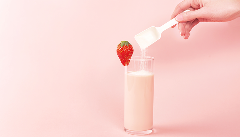
BelliWelli secures funding for retail and team expansion
2 Jan 2025
US fibre brand BelliWelli has confirmed a further $10 million series B investment from Invus. The investment will help the company further expand its presence in the US.
Read more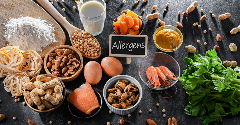
EU calls to harmonise allergen labelling increase
1 Jan 2025
Allergy awareness efforts focus on implementing a European reference laboratory and collaboration to standardise labels and support allergen identification.
Read more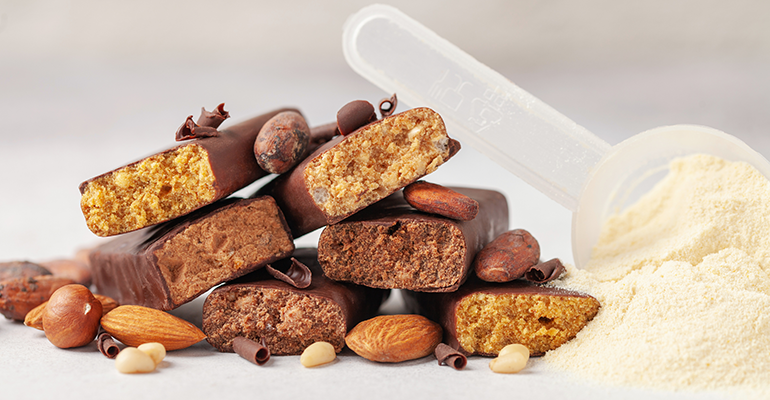
Japanese study points to risk of excessive nutritional fortification
31 Dec 2024
Fortified foods and supplements are mainly beneficial but there is a small risk of over-supplementation – particularly for vitamin B6, a Japanese study has concluded.
Read more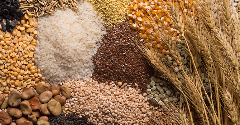
Is it time for a global definition of whole grain?
30 Dec 2024
Amid a lack of harmonisation, the European Food Information Council (EUFIC) is calling for a global definition of the term whole grain to end consumer confusion.
Read more
EFSA publishes new food additive research on non-nutritive sweetener saccharine
27 Dec 2024
The European Food Safety Authority (EFSA) has released new recommendations on saccharin and its sodium, potassium and calcium salts (E 954) as food additives.
Read more
FDA delivers workshop on nutrition regulation and science
19 Dec 2024
The FDA hosted a nutrition regulatory science workshop exploring ultra-processed foods and emerging technologies, aiming to spotlight the relationship between nutrition, science, and evidence-based policies.
Read more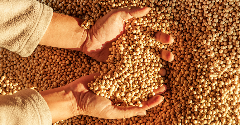
How US soy exports shape Southeast Asian food
19 Dec 2024
As Southeast Asia and the US mark 20 years of trade, trends in soy, especially plant-based preferences, signal increasing demand for high-quality protein sources.
Read more
Hormel Foods sells its Health Labs brands to Lyons Magnus
17 Dec 2024
Hormel Foods has confirmed the sale of its Hormel Health Labs division to Lyons Magnus, creating Lyons Health Labs. The strategic move aims to better position Lyons Magnus as a leading player in the growing US market for nutritional and health products...
Read more
Nestlé releases products for pregnancy and fertility
13 Dec 2024
Building on in-house research, existing scientific evidence, and consumer demands, the global food company has developed products designed for mothers and babies.
Read more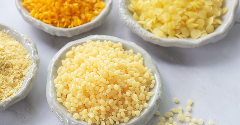
Consumer awareness and transparency key factors in shift to natural-based emulsifiers
11 Dec 2024
The demand for natural-based emulsifiers in the food industry is surging as health concerns over the use of synthetic emulsifiers have consumers looking for alternatives.
Read more